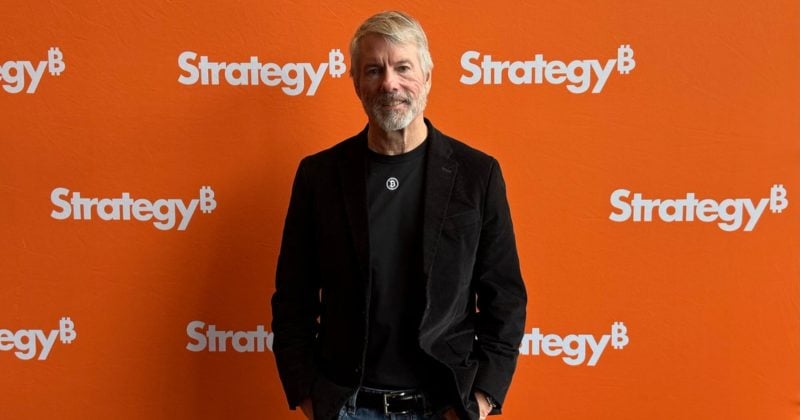
Day: February 9, 2025
NEPC: AI sprint risks environmental catastrophe – AI News

AI News is part of the TechForge Publications series
TechForge
Artificial Intelligence, Data Center, Ethics & Society, Legislation & Government
Ryan Daws
February 7, 2025
Share this story:
Tags:
Categories::
The government is urged to mandate stricter reporting for data centres to mitigate environmental risks associated with the AI sprint.
A report published today by the National Engineering Policy Centre (NEPC) highlights the urgent need for data centres to adopt greener practices, particularly as the government’s AI Opportunities Action Plan gains traction.
The report, Engineering Responsible AI: Foundations for Environmentally Sustainable AI, was developed in collaboration with the Royal Academy of Engineering, the Institution of Engineering and Technology, and BCS, the Chartered Institute of IT.
While stressing that data centres enabling AI systems can be built to consume fewer resources like energy and water, the report highlights that infrastructure and regulatory conditions must align for these efficiencies to materialise.
AI is heralded as capable of driving economic growth, creating jobs, and improving livelihoods. Launched as a central pillar of the UK’s tech strategy, the AI Opportunities Action Plan is intended to “boost economic growth, provide jobs for the future and improve people’s everyday lives.”
Use cases for AI that are already generating public benefits include accelerating drug discovery, forecasting weather events, optimising energy systems, and even aiding climate science and improving sustainability efforts. However, this growing reliance on AI also poses environmental risks from the infrastructure required to power these systems.
Data centres, which serve as the foundation of AI technologies, consume vast amounts of energy and water. Increasing demand has raised concerns about global competition for limited resources, such as sustainable energy and drinking water. Google and Microsoft, for instance, have recorded rising water usage by their data centres each year since 2020. Much of this water comes from drinking sources, sparking fears about resource depletion.
With plans already in place to reform the UK’s planning system to facilitate the construction of data centres, the report calls for urgent policies to manage their environmental impact. Accurate and transparent data on resource consumption is currently lacking, which hampers policymakers’ ability to assess the true scale of these impacts and act accordingly.
The NEPC is urging the government to spearhead change by prioritising sustainable AI development. The report outlines five key steps policymakers can act upon immediately to position the UK as a leader in resource-efficient AI:
Mandatory environmental reporting forms a cornerstone of the recommendations. This involves measuring data centres’ energy sources, water consumption, carbon emissions, and e-waste recycling practices to provide the resource use data necessary for policymaking.
Raising public awareness is also vital. Communicating the environmental costs of AI can encourage developers to optimise AI tools, use smaller datasets, and adopt more efficient approaches. Notably, the report recommends embedding environmental design and sustainability topics into computer science and AI education at both school and university levels.
One of the most urgent calls to action involves redesigning data centres to reduce their environmental footprint. The report advocates for innovations like waste heat recovery systems, zero drinking water use for cooling, and the exclusive use of 100% carbon-free energy certificates.
Efforts like those at Queen Mary University of London, where residual heat from a campus data centre is repurposed to provide heating and hot water, offer a glimpse into the possibilities of greener tech infrastructure.
In addition, the report suggests revising legislation on mandatory data retention to reduce the unnecessary environmental costs of storing vast amounts of data long-term. Proposals for a National Data Library could drive best practices by centralising and streamlining data storage.
Professor Tom Rodden, Pro-Vice-Chancellor at the University of Nottingham and Chair of the working group behind the report, urged swift action:
“In recent years, advances in AI systems and services have largely been driven by a race for size and scale, demanding increasing amounts of computational power. As a result, AI systems and services are growing at a rate unparalleled by other high-energy systems—generally without much regard for resource efficiency.
“This is a dangerous trend, and we face a real risk that our development, deployment, and use of AI could do irreparable damage to the environment.”
Rodden added that reliable data on these impacts is critical. “To build systems and services that effectively use resources, we first need to effectively monitor their environmental cost. Once we have access to trustworthy data… we can begin to effectively target efficiency in development, deployment, and use – and plan a sustainable AI future for the UK.”
Dame Dawn Childs, CEO of Pure Data Centres Group, underscored the role of engineering in improving efficiency. “Some of this will come from improvements to AI models and hardware, making them less energy-intensive. But we must also ensure that the data centres housing AI’s computing power and storage are as sustainable as possible.
“That means prioritising renewable energy, minimising water use, and reducing carbon emissions – both directly and indirectly. Using low-carbon building materials is also essential.”
Childs emphasised the importance of a coordinated approach from the start of projects. “As the UK government accelerates AI adoption – through AI Growth Zones and streamlined planning for data centres – sustainability must be a priority at every step.”
For Alex Bardell, Chair of BCS’ Green IT Specialist Group, the focus is on optimising AI processes. “Our report has discussed optimising models for efficiency. Previous attempts to limit the drive toward increased computational power and larger models have faced significant resistance, with concerns that the UK may fall behind in the AI arena; this may not necessarily be true.
“It is crucial to reevaluate our approach to developing sustainable AI in the future.”
Public awareness of AI’s environmental toll remains low. Recent research by the Institution of Engineering and Technology (IET) found that fewer than one in six UK residents are aware of the significant environmental costs associated with AI systems.
“AI providers must be transparent about these effects,” said Professor Sarvapali Ramchurn, CEO of Responsible AI UK and a Fellow of the IET. “If we cannot measure it, we cannot manage it, nor ensure benefits for all. This report’s recommendations will aid national discussions on the sustainability of AI systems and the trade-offs involved.”
As the UK pushes forward with ambitious plans to lead in AI development, ensuring environmental sustainability must take centre stage. By adopting policies and practices outlined in the NEPC report, the government can support AI growth while safeguarding finite resources for future generations.
(Photo by Braden Collum)
See also: Sustainability is key in 2025 for businesses to advance AI efforts
Want to learn more about AI and big data from industry leaders? Check out AI & Big Data Expo taking place in Amsterdam, California, and London. The comprehensive event is co-located with other leading events including Intelligent Automation Conference, BlockX, Digital Transformation Week, and Cyber Security & Cloud Expo.
Explore other upcoming enterprise technology events and webinars powered by TechForge here.
Ryan Daws
Senior Editor
February 7, 2025
February 7, 2025
February 7, 2025
February 7, 2025
Subscribe now to get all our premium content and latest tech news delivered straight to your inbox
AGI, Applications, Artificial Intelligence, Chatbots, Companies
Artificial Intelligence
Applications, Artificial Intelligence, Chatbots, Companies, Development, Legislation & Government, Privacy, Surveillance
Applications, Artificial Intelligence, Companies, Enterprise, Industries, Logistics, Manufacturing
Artificial Intelligence, Data Center, Ethics & Society, Legislation & Government
February 7, 2025
Artificial Intelligence, Blockchain, Chatbots
February 7, 2025
Artificial Intelligence, Data Center, Enterprise, Ethics & Society
February 4, 2025
All our premium content and latest tech news delivered straight to your inbox
AI News is part of TechForge
All our premium content and latest tech news delivered straight to your inbox
Colorado teacher who had sexual relationship with special needs student sent to prison – CBS News

Watch CBS News
By
/ CBS Colorado
A former Lakewood teacher was sentenced last week in a sexual assault case that began after a special needs student left hints about an inappropriate relationship on a class assignment.
The boy’s writing was witnessed by another teacher in November 2023. At the time, the Lakewood Police Department was notified and an investigation launched.
It uncovered a sexual relationship between the 16-year-old and one of the school’s paraprofessionals, Imagine Kay Ewers.
Ewer, 28, was sentenced Jan. 31 to four years in the Colorado Department of Corrections and at least 10 years of sex offender probation. That probation could last the rest of her life, depending on Ewer’s success or failure with a sex offender treatment program.
Ewer pleaded guilty last November to sexual assault on a child and contributed to the delinquency of a minor, both felonies, a month before she was scheduled to go to trial. Prosecutors dismissed three other felony counts and one misdemeanor in exchange for her guilty plea.
Her plea came one year after Brady Exploration School staff called police.
According to a press release from the 1st Judicial District Attorney’s Office, Lakewood’s criminal investigation revealed Ewer’s obvious “favoritism” for the victim was noticed by school staff “almost immediately” after Ewer began working there in August 2023. Evidence of a possibly inappropriate relationship began a month later, per prosecutors.
Ultimately, investigators found “thousands upon thousands upon thousands” of text messages, evidence of the introduction of drugs, alcohol, and weapons, and references to numerous sexual encounters, as described by prosecutors.
At the sentencing hearing, First Judicial District Attorney’s Office Special Victims Prosecutor Brynn Chase said Ewer brought illicit substances into the relationship with the boy, including fentanyl.
Ewer also repeatedly asked the boy to bring a gun to their sexual encounters and directed him “to bring the gun to school and shoot another faculty member in the leg,” said Chase.
The boy’s mother also spoke at the hearing.
“The defendant preyed on my son,” she stated, as indicated in the DA’s press release, “leading him to believe she genuinely cared for him, all while exploiting him for money and manipulating him into thinking he was ‘the one.’…What makes this even more painful is that I trusted the defendant…[H]ad I known what was truly happening, I would never have allowed her such close access to him.”
Ewer stood before the judge and expressed remorse.
“I just want to apologize to the victim and the victim’s family,” she said, according to the DA’s office. “I’m really sorry; this will never happen again.”
Jefferson County District Court Judge Chantel E. Contiguglia noted the case was Ewer’s first adult felony conviction, per the DA’s office. But she also expressed concern for aggravating circumstances of the case and the fact Ewer was arrested for drug possession in Douglas County while awaiting her trial in JeffCo.
Judge Contiguglia added conditions to Ewer’s probation, including supervisor’s access to her electronic devices over its duration. Ewer also must register as a sex offender for the rest of her life.
Prior to her short stint with Brady Exploration, an alternative high school, Ewer had worked at various positions – teaching assistant, paraprofessional, and school nurse – within Jefferson County Public Schools since 2015.
A paraprofessional is a paid position. That person provides additional instruction and classroom management in support of a classroom’s licensed teacher. The Colorado Department of Education recommends school districts require an associate’s degree and successful competency assessment of paraprofessional applicants, but also suggests district’s lean on local hiring requirements.
Currently, as the department notes on its website, there are no qualification or credentialing requirements for paraprofessionals or teaching assistants that have been written into Colorado law.
“Over the past year, multiple individuals in positions of trust within Jefferson County have been accused and charged with similar offenses,” Prosecutor Chase stated in the DA’s press release. “While the school district plays a critical role in addressing and preventing such behavior, the criminal justice system’s ability to offer accountability only comes through collaboration and a common goal of safety.”
The Colorado state legislature created a task force in 2022 to improve coordination between individuals and institutions that are required to report evidence of child abuse. The impetus for the measure was the death of a 7-year-old Douglas County girl. The girl’s father sued a hospital for allegedly ignoring signs of his daughter’s abuse by her mother.
That task force released its final report in January.
The hospital and the dead girl’s father settled out of court.
Logan Smith is an assignment desk editor at CBS Colorado in Denver with more than 30 years of journalism experience in digital, television and print media.
© 2025 CBS Broadcasting Inc. All Rights Reserved.
©2025 CBS Broadcasting Inc. All Rights Reserved.
Grass Crypto: Growing A Greener Blockchain Ecosystem Through Sustainable Innovation – Blockchain Magazine

Home – Cryptocurrency – Grass Crypto: Growing a Greener Blockchain Ecosystem Through Sustainable Innovation
Grass Crypto is stepping up as a game-changer in the world of digital currencies. It’s not just about making transactions anymore; it’s about making them green and sustainable. Traditional cryptocurrencies are notorious for their heavy energy use, but Grass Crypto is flipping the script. By tapping into unused computing power and shared network resources, it’s paving the way for a cleaner and more inclusive crypto space. This isn’t just a tech shift; it’s a movement towards a more sustainable digital economy where everyone can participate, regardless of their resources.
Traditional cryptocurrencies like Bitcoin and Ethereum have long been criticized for their massive energy consumption. The mining process requires powerful computers running non-stop, which leads to high electricity usage and contributes to carbon emissions. In fact, Bitcoin mining alone is estimated to consume as much energy annually as some small countries. This environmental impact has sparked debates on the sustainability of digital currencies.
Grass Crypto is changing the game by offering a greener alternative. It uses shared network resources, tapping into idle internet bandwidth to process transactions more efficiently. This approach significantly cuts down on energy use, making it a more sustainable option. By decentralizing its network and utilizing existing resources, Grass Crypto reduces the need for power-hungry mining rigs, thus lowering its carbon footprint.
Grass Crypto’s innovation doesn’t stop at reducing energy consumption. It also introduces new methods to ensure eco-friendliness in the blockchain space. For instance, it employs a reward system that incentivizes users to contribute their unused computing power. This not only makes the network more robust but also democratizes access to cryptocurrency mining. Additionally, the platform’s decentralized network structure ensures that no single entity controls the system, promoting transparency and fairness.
Grass Crypto is all about using decentralized networks to make blockchain more sustainable. Unlike traditional systems that rely heavily on centralized servers, Grass Crypto spreads its workload across a network of users. This means less energy consumption and more resilience against failures. Decentralization not only boosts security but also ensures that no single entity has control over the entire network. This democratizes the technology and makes it more accessible to everyone.
One of the coolest things about Grass Crypto is how it taps into unused computing power. Think about all those computers sitting idle or underutilized. Grass Crypto uses this spare capacity to process transactions and secure the network. So, instead of wasting energy, it makes use of what’s already available. This approach not only cuts down on energy usage but also allows everyday people to contribute to the blockchain ecosystem without needing fancy equipment.
Shared network resources are at the heart of Grass Crypto’s strategy. By pooling resources, it can scale efficiently and sustainably. This collective approach means that the network can handle more transactions without the need for massive infrastructure investments. It’s like a community garden where everyone chips in a little to reap big rewards. This not only helps in reducing the carbon footprint but also makes the system more robust and adaptable to changes.
Grass Crypto is all about making cryptocurrency accessible to everyone, not just tech-savvy folks or big investors. By using a decentralized network, it opens the door for people with limited resources to join the digital currency world. Everyone can participate, whether you’re a small business owner or just someone curious about crypto. This inclusivity helps create a diverse community where everyone has a voice and a chance to benefit.
With Grass Crypto, both individuals and businesses can find new ways to earn and grow. People can monetize their unused internet bandwidth, turning something they already have into a source of income. For businesses, especially smaller ones, Grass Crypto provides an affordable entry into the digital currency market. There’s no need for expensive tech or gear, making it easier for startups to get involved.
Grass Crypto is more than just a cryptocurrency; it’s a tool for building a better economy. By allowing everyone to contribute, it supports a digital economy that’s fair and open. This community-focused approach encourages collaboration, helping to create a system where everyone can thrive. The shared network resources mean that everyone can help grow the network, making it stronger and more sustainable.
Grass Crypto is about more than just technology—it’s about people coming together to create a future where everyone can succeed. By breaking down barriers and offering real opportunities, it helps build a digital economy that’s inclusive and dynamic.
Grass Crypto is making waves in the AI space by providing a unique platform for AI model training. By leveraging its decentralized network, it offers a greener way to gather and process the massive amounts of data needed for AI development. This approach not only reduces the carbon footprint but also speeds up the training process, making it more efficient and accessible for researchers and developers.
In the world of AI research, having access to structured datasets is crucial. Grass Crypto stands out by enabling the collection and sharing of web data through its network. Researchers can either gather data directly or utilize pre-structured datasets available on the platform. This not only saves time but also ensures data accuracy and reliability, which are essential for groundbreaking AI innovations.
Looking ahead, Grass Crypto is poised to play a significant role in shaping the future of AI. By continuously enhancing its network capabilities, it aims to support more complex AI models and data-driven applications. The platform’s commitment to sustainability and inclusivity makes it a key player in the AI landscape, offering a future where AI development is both environmentally friendly and widely accessible.
Grass Crypto is not just another player in the blockchain space; it’s a catalyst for change in AI and data innovation. By harnessing the power of its community, it creates a sustainable ecosystem that benefits everyone involved.
Grass Crypto introduces a clever way to turn idle internet bandwidth into a source of income. Instead of letting your internet connection sit unused, you can now contribute it to a decentralized network. This process not only generates passive income but also supports the broader cryptocurrency ecosystem. By participating, users can earn rewards without any significant effort. This is a win-win, as it helps decentralize the network and provides users with a new revenue stream.
Small businesses often find it challenging to enter the cryptocurrency market due to high initial costs. Grass Crypto changes this by offering a low-cost entry point, making digital assets accessible without the need for expensive hardware or technical expertise. This inclusivity allows startups and small enterprises to participate in the crypto economy, leveling the playing field and fostering innovation.
Grass Crypto opens up fresh opportunities for both individuals and businesses to generate income. Whether it’s through participating in the network or trading resources, there’s a chance to earn in various ways. This flexibility is particularly beneficial in today’s fast-paced digital economy, where diversification of income sources is crucial. Grass Crypto not only democratizes access to cryptocurrency but also paves the way for a more inclusive financial future.
Grass Crypto is not just about technology; it’s about creating a fairer economy. By enabling monetization of unused resources, it empowers everyone to participate in the digital revolution without barriers.
Grass Crypto is all about bringing people together in the world of digital currency. It’s not just about technology; it’s about building a community. By working together, we can create a more inclusive and diverse cryptocurrency ecosystem. This means everyone, from big businesses to small startups, has a chance to make their mark. Unity is the key to unlocking a future where digital assets are accessible to all.
With Grass Crypto, the future of finance is looking bright. It’s not just about creating a new form of currency; it’s about reshaping how we think about money. By focusing on sustainable practices and community-driven development, Grass Crypto is setting the stage for a new era in finance. This is where technology meets responsibility.
Grass Crypto is paving the way for a future where digital finance is not only innovative but also sustainable and fair for everyone involved.
In the world of Grass Crypto, everyone gets a say. The network is designed to be democratic, meaning every participant has a voice. This ensures that decisions are made collectively, and no single entity has too much control. It’s about creating a fair playing field where everyone can contribute and benefit.
Grass Crypto is more than just a digital currency; it’s a movement towards a unified and equitable future in the cryptocurrency world. By focusing on collaboration, sustainability, and fairness, it’s setting a new standard for what digital finance can be.
So, there you have it. Grass Crypto is really shaking things up in the blockchain world. By focusing on sustainability and using shared resources, it’s paving the way for a greener future in digital currencies. It’s not just about cutting down energy use; it’s about making sure everyone can join in and benefit. This platform is opening doors for individuals and businesses alike, making the crypto space more inclusive and accessible. As we move forward, Grass Crypto is set to play a big role in shaping a more sustainable and fair digital economy. It’s exciting to see how this innovation will continue to grow and make a difference.
Grass Crypto is a new kind of digital money that uses shared computer power to be more eco-friendly. It helps make digital transactions greener and more open for everyone.
Grass Crypto uses less energy by sharing unused computer power from people and businesses. This reduces the carbon footprint compared to traditional cryptocurrency mining.
Anyone can use Grass Crypto! It’s designed for individuals, small businesses, and big companies who want to be part of a greener digital economy.
You can earn by sharing your extra computer power. Grass Crypto rewards you for helping make the network strong and green.
Yes, Grass Crypto is safe. It uses secure technology to protect your data and transactions, making sure everything is fair and transparent.
Unlike other digital currencies, Grass Crypto focuses on being eco-friendly and inclusive. It allows more people to join and benefit from the digital money world.
Stay informed with daily updates from Blockchain Magazine on Google News. Click here to follow us and mark as favorite: [Blockchain Magazine on Google News].
Stay ahead of the curve with expert analysis and market updates.
Disclaimer: Any post shared by a third-party agency are sponsored and Blockchain Magazine has no views on any such posts. The views and opinions expressed in this post are those of the clients and do not necessarily reflect the official policy or position of Blockchain Magazine. The information provided in this post is for informational purposes only and should not be considered as financial, investment, or professional advice. Blockchain Magazine does not endorse or promote any specific products, services, or companies mentioned in this posts. Readers are encouraged to conduct their own research and consult with a qualified professional before making any financial decisions. The featured image used is just a creative depiction of the title and it does not intend to hurt sentiments of any person or institution. If it hurts anyone sentiments, please do not hesitate to reach out to Blockchain Magazine.
Blockchain Magazine is a leading authority in the realm of blockchain and cryptocurrency, offering comprehensive coverage and insightful analysis of this dynamic industry.
About
About
Editorial Team
Careers
BM Press
Get in touch
Contact Us
Advertise
Sitemap
Author Program
Fine Print
Editorial Policy
Ethics Policy
Terms of Use
Privacy Policy
Important Links
About
About
Editorial Team
Careers
BM Press
Get in touch
Contact Us
Advertise
Sitemap
Author Program
Fine Print
Editorial Policy
Ethics Policy
Terms of Use
Privacy Policy
Important Links
© 2015 – 2025 Blockchain Magazine Now in USA | Singapore | India • All Rights Reserved.
Looking to expand your reach in the blockchain industry? Advertise with Blockchain Magazine and connect with a highly engaged global audience.
For more information on our audience demographics, statistics, and advertising opportunities, visit our detailed Advertise page or Submit Press Release.
📧 Reach us at: info@blockchainmagazine.com
💬 Or DM us on Telegram: @blockchainmagazineofficial
You can also submit the form below and we will reach out to you within 24 hours.
Stay ahead of the curve with expert analysis, market updates, and exclusive content curated by our team of blockchain enthusiasts.
I have read and agree to the Terms and Conditions and Privacy Policy
Press “ESC” key to close
Free integrative health clinics for first responders – FOX 11 Los Angeles

Pasadena is holding free integrative health clinic for first responders in the Eaton and Palisades fires.
Share
This material may not be published, broadcast, rewritten, or redistributed. ©2025 FOX Television Stations
Polls Keep Showing Americans Want Elon Musk and DOGE Out of Government – Mother Jones

Poll after poll shows a large proportion of Americans do not want Elon Musk making decisions about the how the government functions.Andrew Harnik/La Nacion/ZUMA
Yet more evidence shows Elon Musk and his cronies at the so-called Department of Government Efficiency (DOGE) are unpopular with Americans.
Nearly half of people who responded to a new CBS/YouGov poll out today said they want Musk to have less influence over government spending and operations, including a third who think they should have none at all. The poll found that 18 percent of respondents said that Musk and his DOGE acolytes should have “not much” influence on government operations and spending, while 31 percent said they should have none at all. Predictably, the support differed along partisan lines: Nearly three-quarters of Republicans surveyed said Musk and DOGE should have “a lot” or “some” influence, whereas nearly a third of Democrats said they should have “not much” or “none.”
This comes as the latest bit of mounting evidence showing Americans don’t want Musk running the government: Just this week, a poll from the Economist/YouGov also showed that 51 percent of Americans believe Musk has a lot of influence in the government, while only 13 percent want him to have that much influence; 46 percent, on the other hand, don’t want him to have any influence. Another poll released this week from progressive advocacy groups Groundwork Collaborative and Public Citizen in partnership with Hart Research found 54 percent of voters have an unfavorable opinion of him, with a majority also saying he has too much influence and involvement in the government and that they have less favorable opinions given the lack of oversight regulating potential conflicts of interest with his companies as well as the ability of DOGE to access unclassified information.
Last month, a Quinnipiac University poll found 53 percent of respondents disapprove of Musk’s prominent role in the Trump administration, and a another January poll, from the Associated Press-National Opinion Research Center, found that a majority of Americans don’t want Trump relying on billionaires or family members for policy advice and have an unfavorable opinion of Musk.
All in all, this is not surprising, given that, as Mother Jones editor-in-chief Clara Jeffery wrote earlier this week, nobody voted for Musk, an unelected tech billionaire. The latest data offers a clear rebuke to the hurricane of chaos that Musk and his cronies at DOGE and across the federal government have unleashed since President Trump’s inauguration.
In case you’ve been living under a rock, that chaos has included trying to pay federal workers to quit their jobs; attempting to gain access to US Treasury data; threatening to shutter USAID, a federal agency tasked with supporting critical humanitarian and development work around the world; taking over the Education Department, which Musk claimed on X the other day “doesn’t exist”; and threatening reporters who report critically on DOGE. (And given that the department is reportedly staffed by Gen Z fanboys and former staffers of Musk—one of whom, Marko Elez, resigned on Thursday after the Wall Street Journal unearthed openly racist posts on an account linked to him, before Musk promptly rehired him the next day—there has been plenty to cover.)
The CBS/YouGov poll released Sunday showed other Trump policies that are also unpopular: 52 percent of respondents said they oppose building large detention centers to house people awaiting decisions on whether or not they’ll be deported; only 13 percent said the US trying to take over Gaza, as Trump proposed this week, would be a good idea (47 percent called it a bad idea, and 40 percent said they’re unsure); 66 percent said Trump is not focused enough on lowering prices; and large majorities said they oppose new US tariffs on goods from Mexico, Europe, and Canada (economists have said those tariffs will likely raise prices for American consumers).
But in a news release from the White House Sunday, responses to those data points in the new CBS poll were invisible. “Americans Are Loving the New Golden Age,” the press release claimed, touting Trump’s 53 percent approval rating, the 70 percent of poll respondents who said Trump is doing what he promised on the campaign trail, and the majority approval for his mass deportation plan and his handling of the Israel-Hamas conflict. (Never mind that those assertions would seem to be in conflict with some of the other findings mentioned above—such as the limited support for his floated plan to take over Gaza.)
White House Press Secretary Karoline Leavitt shared the headline from CBS on X: “Trump has positive approval amid ‘energetic’ opening weeks; seen as doing what he promised,” it read. Leavitt’s enthusiastic promotion of it was curious given that, just a few days ago, her boss, President Trump, said in a post on Truth Social that CBS should “lose its license” over a 60 Minutes interview the network did with former Vice President and Democratic presidential nominee Kamala Harris. (Trump filed a lawsuit against the network, alleging that the 60 Minutes interview was deceptively edited to make Harris look better; CBS denies those allegations and this week released the raw footage and transcript of the entire interview, which it also provided to the Federal Communications Commission upon request.)
The White House’s promotion of the latest CBS poll—and its refusal to seriously engage with public criticisms of Musk, along with other points of contention—offers a clear example of its hypocrisy regarding its attacks on journalism and truth: What Trump’s acolytes see as favorable to him get labeled as legitimate, whereas anything more critical gets branded “fake news”—or simply ignored.
When it comes to Musk, they’ve continued to defend him—and showed how unseriously they seem to be taking his position in the highest levels of government. At a press briefing this week, Leavitt said that Trump was clear on the campaign trail about the role Musk would play in his administration. Separately, when a CNN reporter asked Leavitt what kind of security clearance Musk has, if he passed a background check, or if the DOGE team members raising the Treasury Department or USAID, she said she didn’t know and would have to check. The White House does not appear to have clarified those points yet.
But if Democrats continue attacking Musk and the role of oligarchy in the Trump administration, as they did this week, the White House may have no choice but to confront the discontent around Musk and DOGE head-on.
Subscribe to the Mother Jones Daily to have our top stories delivered directly to your inbox.
By signing up, you agree to our privacy policy and terms of use, and to receive messages from Mother Jones and our partners.
Mother Jones was founded to do journalism differently. We stand for justice and democracy. We reject false equivalence. We go after stories others don’t. We’re a nonprofit newsroom, because the kind of truth-telling investigations we do doesn’t happen under corporate ownership.
And the essential ingredient that makes all this possible? Readers like you.
It’s reader support that enables Mother Jones to devote the time and resources to report the facts that are too difficult, expensive, or inconvenient for other news outlets to uncover. Please help with a donation today if you can—even a few bucks will make a real difference. A monthly gift would be incredible.
Mother Jones was founded to do journalism differently. We stand for justice and democracy. We reject false equivalence. We go after stories others don’t. We’re a nonprofit newsroom, because the kind of truth-telling investigations we do doesn’t happen under corporate ownership.
And the essential ingredient that makes all this possible? Readers like you.
It’s reader support that enables Mother Jones to devote the time and resources to report the facts that are too difficult, expensive, or inconvenient for other news outlets to uncover. Please help with a donation today if you can—even a few bucks will make a real difference. A monthly gift would be incredible.
Julianne McShane
Akielly Hu
Ian Gordon
Samantha Michaels
Sarah Szilagy
Oliver Milman
David Corn and Dan Friedman
Samantha Michaels
Naveena Sadasivam
Nina Martin
Aviva Stahl
Isabela Dias
Subscribe to the Mother Jones Daily to have our top stories delivered directly to your inbox.
By signing up, you agree to our privacy policy and terms of use, and to receive messages from Mother Jones and our partners.
Save big on a full year of investigations, ideas, and insights.
Help Mother Jones‘ reporters dig deep with a tax-deductible donation.
Inexpensive, too! Subscribe today and get a full year of Mother Jones for just $19.95.
Award-winning photojournalism.
Stunning video. Fearless conversations.
Subscribe to the Mother Jones Daily to have our top stories delivered directly to your inbox.
By signing up, you agree to our privacy policy and terms of use, and to receive messages from Mother Jones and our partners.
This site is protected by reCAPTCHA and the Google Privacy Policy and Terms of Service apply.
Copyright © 2025 Mother Jones and the Center for Investigative Reporting. All Rights Reserved.
Can you pitch in a few bucks to help fund Mother Jones’ investigative journalism? We’re a nonprofit (so it’s tax-deductible), and reader support makes up about two-thirds of our budget.
We noticed you have an ad blocker on. Can you pitch in a few bucks to help fund Mother Jones’ investigative journalism?
We’re a nonprofit newsroom, because the truth-telling investigations we do don’t happen under corporate ownership. We get to shine a bright light into the dark corners of power and report stories other media are afraid to touch. The essential ingredient that makes this possible? Readers like you.
We’ve got a lot of hard, consequential work to do in the weeks and months ahead, and we can’t do it without reader support. Please stand up for independent media and make a donation today.
We’re a nonprofit newsroom, because the truth-telling investigations we do don’t happen under corporate ownership. We get to shine a bright light into the dark corners of power and report stories other media are afraid to touch. The essential ingredient that makes this possible? Readers like you.
We’ve got a lot of hard, consequential work to do in the weeks and months ahead, and we can’t do it without reader support. Please stand up for independent media and make a donation today.
Sign up for the free Mother Jones Daily newsletter and follow the news that matters.
Bitcoin: Newport man wants to buy tip where he lost £620m fortune – BBC.com

A computer engineer who lost £620m-worth of Bitcoin wants to buy the tip where he believes it is buried.
James Howells, from Newport, claimed his ex-girlfriend mistakenly chucked out a hard drive containing 8,000 bitcoins in 2013.
He tried to sue the city council to get access to the site on Newport’s Docks Way, or get £495m in compensation, but his case was dismissed by a judge.
Newport Council has been approached for comment.
The authority is planning to close the tip in the 2025-26 financial year.
It has planning permission for a solar farm on the land, expected to power the council’s new bin lorries.
Mr Howells said: “The council planning on closing the landfill so soon is quite a surprise, especially since it claimed at the High Court that closing the landfill to allow me to search would have a huge detrimental impact on the people of Newport, whilst at the same time they were planning to close the landfill anyway.”
The landfill holds more than 1.4m tonnes of waste.
Mr Howells believes the hard drive is in an area of 100,000 tonnes.
“I would be potentially interested in purchasing the landfill site,” he said.
“I have discussed this option recently with investment partners and it is very much on the table.”
Mr Howells also wants to appeal Judge Keyser’s decision to throw out his case.
The judge said there were no grounds for the claim and “no realistic prospect” of succeeding at trial.
He ruled too much time had passed between the hard drive being lost and the claim being brought.
Bitcoin is often described as a cryptocurrency, a virtual currency or a digital currency and is a type of money that is completely virtual – there are no physical coins or notes.
You can use it to buy products and services, but not many shops accept Bitcoin.
In China it is illegal to trade or mine Bitcoin and its use is restricted in countries including Saudi Arabia and Qatar.
Firefighters say the highways vehicle was stationary within a closed work zone when it was hit.
James Howells has been desperate to search Newport tip for 8,000 coins worth about £623m.
Locals objected to plans for the home, which will be eight metres tall in a rural hamlet.
Philip Morris died days after part of his stomach was removed during a gastric sleeve procedure.
The three-month-old has a rare life-threatening disorder if left untreated or not promptly diagnosed.
Copyright 2025 BBC. All rights reserved. The BBC is not responsible for the content of external sites. Read about our approach to external linking.
Column: A resolution to amend the student government – – The Daily Tar Heel

We keep you informed.
My childhood obsession with Legos was one for the books. So much so, that as I built expansive Lego worlds over the years, I was forced to establish a so-called Lego government, appointing my favorite minifigures to lead it.
These minifigures met weekly to discuss whatever ongoing events I had cooked up in my imaginary world. The Lego president Yoda met with neighboring nations and Lego supreme court justice Indiana Jones officiated the first ever gay Lego wedding between two of my Lego Ninjago pieces.
In my time at UNC, I have often believed there to be many parallels in our own student government with my childhood Lego world including, but not limited to, inefficiency, not being grounded in reality and being born out of a desire for attention.
While not all of the student government fits that profile, I can’t help feeling that in many ways, it has surpassed the scope of our campus.
Take the undergraduate senate, for starters. Each year, every UNC student is forced to fork over approximately $25 for a student organization fee. This may not seem like much, but in total these student organization fees bring in close to about $500,000 a year.
It’s up to the undergraduate senate to decide the allocation of these funds, so it’s not surprising that for the spring 2024 semester they allotted themselves, and the rest of student government, a whopping $50,000 for student government-related stipends.
If you’re like me, you’re now assuming that if the student government is allotting themselves an entire 10 percent of the student organization’s yearly budget, they must be getting some pretty important work done. Yet, a quick look at the undergraduate senate’s agenda for last month, and you can’t help but think maybe the senate is a little too fond of tooting their own horn.
Last month alone, the undergraduate senate passed USB 106-145, a bill approving a bake sale for a library and the authorization of $1,000 from the budget to be put toward an end-of-year party celebrating themselves. They also passed USB 106-134, a bill that more or less says the budget won’t be amended unless absolutely necessary, while simultaneously amending a previous bill from two weeks prior by changing the budget’s resolution rate by 5 percent.
Just last semester, multiple student organizations on campus reported having to dip into their own personal funds in order to compensate for decreased funding by the undergraduate senate. In a Daily Tar Heel article, the Loreleis, an a cappella group, expressed gratitude for the senate’s funding, but also stated they were receiving less funding from the student government than what was initially requested. Other groups like Indian folk dance team Bhangra Elite were also receiving insufficient funding.
If the undergraduate senate has enough money in their own budget for a black-tie party for themselves, certainly there must be additional funding opportunities for groups like these.
Outside of the senate, as student body president campaigns gear up, I feel as if some of these candidates would be better suited for theater than government given their dedication to dramatics — montage videos with emotional music, copy-cat interviews and, of course, Beyoncé references.
This isn’t to say that student government isn’t helpful — budgets are important and so too is advocacy. Student Body President Jaleah Taylor’s current administration helped launch multiple initiatives in her tenure that have made meaningful contributions to student’s well-being.
Student government is meant to exist for improvements in student’s everyday life. It is not capable of massive administrative overhaul. There came a time in life when I myself had to put down my imaginary Lego government and get to work on real life activities like homework. With all this time committed to making nonsense promotional videos and passing ridiculous amendments, student government might benefit from doing the same.
@dthopinion | opinion@dailytarheel.com
To get the day’s news and headlines in your inbox each morning, sign up for our email newsletters.
We know it’s UNC – and we need your help to prove it.
Youth ice racing across the lakes of the Northland – WDIO

During the brisk winter months, the Kids Championship Power Racing Organization East (KCPRO-East) hosts a series of events to get kids on the ice and have some fun. The non-profit, youth ice racing group invites families to race with the intention of teaching kids snowmobile safety while also having fun.
The organization welcomes anyone from age four to seventeen, to join in at any time. Kids are invited to bring their own sleds to participate, and if needed KCPRO-East also has a “TRY-ME” sled. This sled is intended for those who want to give the racing a shot, as this race-ready sled is available to rent (for free) for a day on the ice during a race.
KCPRO-East originated in 1987 in Thief River Falls, Minnesota. At that time, the club consisted of 18-20 race families traveling from the Iron Range to Thief River Falls. Because travel was so widespread, in 1991, the club opted to divide into East and West divisions. This prompted the official creation of KCPRO-East, a non-profit youth ice racing organization, according to the KCPRO-East Website.
Spectators fill the area around the track, as family and friends come to watch and support the races. “I’ve coached and played team sports, and you won’t find an environment better than these kids,” said Steve Roduner, the Vice President of the group. “Any kid wrecks or gets off the track, other kids are running to help them. You will see every dad out there helping each other, help fix their sleds or whatever. So, the camaraderie and the family that we have here is pretty special.”
The season runs throughout January into March, during the winter months. Each race taking place at different lakes across the Northland. KCPRO-East wishes for anyone interested across the northland to reach out, as they have a lot of room for people to join. The current season is seen below.
Any person with disabilities who needs help accessing the content of the FCC Public file should contact Vicki Kaping at vkaping@wdio.com or (218) 727-6864
This website is not intended for users located within the European Economic Area.
© WDIO-TV, LLC
A Hubbard Broadcasting Company

Michael Saylor hints at Strategy’s upcoming Bitcoin purchase amid price fluctuations – Crypto Briefing

Hit your long-term targets.
Earn up to 16% per year on digital assets.
Share this article
Sign in to your account
Don’t have an account? Create one
Create your account
Already have an account? Sign In
Forgot your password?
Sign In






